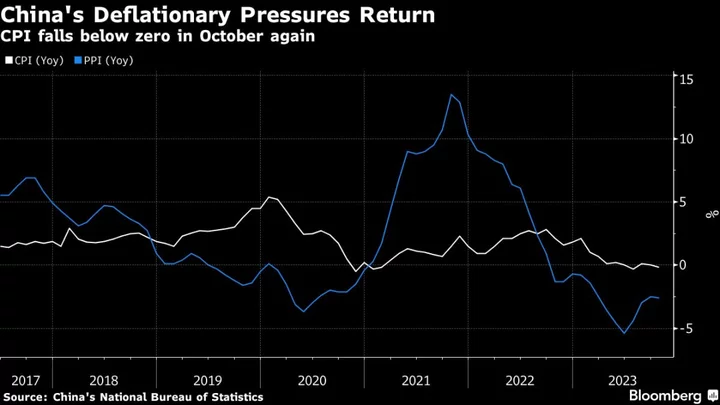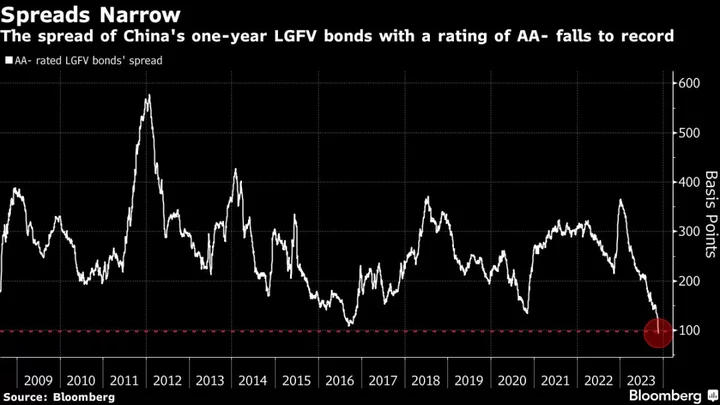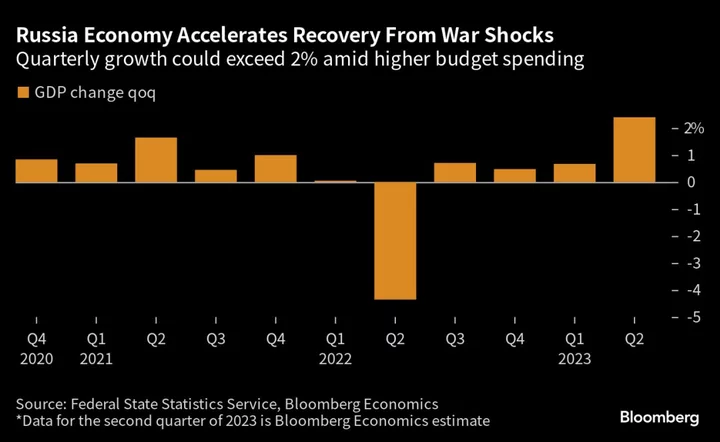Alibaba Group Holding Ltd. and JD.com Inc. reported sales increases during China’s most important shopping festival, yet likely lagged newer entrants from social media platforms like ByteDance Ltd.’s Douyin during a muted year for consumer spending.
Analysts hunted for clues after China’s two e-commerce leaders again failed to disclose overall revenue numbers during Singles’ Day, the annual bargains extravaganza built around the Nov. 11 event that Alibaba popularized over a decade ago. Historically used as a barometer for Chinese consumer sentiment, it’s become much harder to parse since companies stopped providing precise figures during the Covid era.
Alibaba and JD likely managed 1% to 3% growth in gross merchandise value over the three- to four-week period leading up to Nov. 11, when merchants embarked on their discounting spree, Goldman Sachs estimated. Smaller rival PDD Holdings Inc. however, which targets lower-income and rural markets, racked up growth of 20%, analyst Ronald Keung estimated. Alibaba and JD.com report earnings this week in a closely watched signal of how domestic consumption has recovered.
“The slowing growth shows we need to roll out large-scale economic stimulus measures that are strong enough to lift market confidence and drive up the economy,” Ren Zeping, a well-known economist who was formerly a researcher at the State Council’s Development Research Center, wrote Monday. “Consumers are becoming more mature and rational as they go after high value for money. Their perception of brands is also changing, and domestic brands with high value for money are rising.”
Chinese consumption has flagged in the country’s post-pandemic reopening, dogged by economic turbulence from a crumbling property market to rising youth unemployment. Deflationary pressures worsened in October, spurring concerns about the country’s growth trajectory.
Singles’ Day this year focused on a low-price strategy to draw in reluctant consumers. Alibaba’s Taobao and Tmall business said its direct-discount venue offering 15% price reductions notched 210 million orders, while more than 400 brands this year exceeded 100 million in earnings.
“With cautious/selective spending behavior and availability of alternative platforms, we believe consumers have plenty of choices for ‘value-for-money’ products,” Citigroup analyst Alicia Yap wrote. “Consumer shopping time and wallet share have been diluted and split among traditional marketplaces and short video platforms.”
China’s postal delivery companies handled 639 million packages nationwide on Nov. 11, an increase of 16% from last year, the State Post Bureau said Sunday. The number handled in the first 11 days of November totaled 5.3 billion, jumping 23%, according to the bureau.
Less-traditional platforms like Douyin and Kuaishou Technology likely thrived, drawing shoppers with their more novel formats and a longer-than-normal discounts period that began around mid-October. The prolonged coverage plays in their favor because users spend more time on short video platforms in general, Goldman’s Keung said.
JD’s credit payment business Baitiao brought together 400,000 brands and merchants to provide more than 1.5 billion yuan ($206 million) in subsidies for users. The company said more than 60 brands surpassed 1 billion in sales, and that almost 20,000 brands reported that transaction volumes tripled from a year earlier.
“Growth during stage 1 (October 2023) was disappointing. Momentum likely picked up in November,” Jefferies analyst Thomas Chong wrote. “Having said that, growth momentum on the day of November 11 was slower than expected.”
--With assistance from Jeanny Yu, Jinshan Hong, Yujing Liu, Stanley James and Mayumi Negishi.









